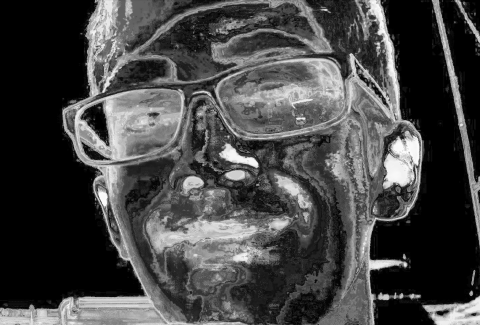
A 16-YEAR-OLD boy died after drinking a protein shake – but his death could have been prevented, it's been revealed.
Rohan Godhania, from Ealing, west London, fell ill on August 15, 2020, with vomiting, confusion and stomach pains.
His parents suspected he was allergic to the drink, never imagining that three days later he would die.
Friday will mark three years since the keen pianist and chess player's passing.
Rohan's mother Pushpa Godhania, 57, said: "I don't think anyone ever gets over the loss of their child.
"Also, now being August, you almost relive it because this time of the year almost reminds you of that horrible weekend.
Read more real life stories
Doctors told me my son was exaggerating to skip school – then he was PARALYSED
Our GP said my 4ft11 daughter was just short for her age – then she woke up BLIND
"It all comes back to you so easily without even trying, it feels like it was just yesterday. You still hope that he's going to come home and none of this is real."
Rohan was admitted to West Middlesex Hospital where it was discovered he had "irreversible brain damage" – but it was not immediately clear why.
His parents, Pushpa and Hitendra, were then left with the difficult decision to donate his organs immediately after the traumatic experience of losing their son.
Despite Rohan’s cause of death being unknown, the family felt “pressure” to grant use of his organs, although it had not been established what had caused his sudden and unexpected passing
Most read in Health
Horror as dozens suffer ‘carbon monoxide poisoning’ at indoor karting track
Map reveals booziest UK cities where locals glug at least seven pints a week
The ‘invisible’ sign of skin cancer you can spot when vacuuming & 8 other signs
Simply 'taking the stairs slashes your risk of 9 deadly cancers by 40%'
More than a year later, the person who received his liver by organ donation was admitted to hospital with seizures.
A biopsy on tissue from the donated organ established that Rohan had suffered a rare disease that explained his death after drinking a protein shake.
His cause of death was, eventually, identified as ornithine transcarbamylase (OTC) deficiency.
The rare genetic condition causes ammonia to build up in the blood, leading to lethal levels.
Ammonia is a normal waste product formed when the body breaks down proteins. Without it being broken down, it is dangerous.
A diet low in protein is recommended, and therefore explains why a protein shake triggered Rohan’s sickness.
It is one type of urea cycle disorder, which is usually spotted in newborns.
But sometimes symptoms aren’t noticeable until later in life.
The mortality rate is 24 per cent for babies, and 11 per cent thereafter, according to American estimates.
Prevention was possible
When Rohan was admitted, advice was taken from the neurologists at Charing Cross Hospital, who said "he should be tested for ammonia".
This screening was not carried out, senior coroner Tom Osborne concluded at the end of Rohan's inquest at Milton Keynes Coroner's Court in Buckinghamshire last month.
He called this a "lost opportunity" to give Rohan further medical treatment that could have "prevented his death".
Mr Osborne said: "The failure to carry out a test for ammonia that would have revealed the hyperammonaemia resulted in a lost opportunity to render further medical treatment that may, on the balance of probabilities, have prevented his death."
He now intends to highlight the lack of guidance for testing ammonia levels in very ill patients.
And he has also called for health warnings to be added to protein shakes.
Ms Godhania suggested people admitted to hospital with the same symptoms as Rohan should undergo an ammonia test.
Rohan was put onto medication for encephalitis and meningitis, which cause inflammation of the brain, "straight away" because doctors suspected there was something wrong with his brain.
But he was not tested for ammonia.
Ms Godhania said: “A lot of people are dying unnecessarily, I feel, because this is being missed and there needs to be education about it, just the way people are more aware of sepsis, more than at least OTC.”
He added that there seems to be “a reluctance (to do the tests)” and “[OTC] could be a silent killer but people don't realise it”.
Rohan’s mum and grandad, Arshi Odedra, 84, were both diagnosed with OTC after his death.
Ms Godhania said: "People of any age can suffer with high ammonia levels.
"So, they need to recognise that if he [Arshi] ever went into hospital and is confused it is not because he's old, it could be because something has pushed an ammonia crisis because he's got OTC and needs his ammonia tested.
"It's possible that people like him would die in hospital and it would just be put down to, he was a bit old."
The family are also demanding to know why their son’s organs were donated given that his sudden deterioration and death had remained unexplained.
Leading up to the third anniversary of his death, Rohan’s mum said: "There are plenty of moments every day where I get quite tearful and so many triggers around the house, all his belongings around the house haven't changed.
“I don't have the heart to change anything so everything is as if he has gone away for holiday. His bedroom is exactly as it is with all his school clothes, all his books, his shoes are in his shoe draws.
Read More on The Sun
I wore pjs as outerwear on holiday, people say I look like Victoria’s Secret angel
Max George fights back tears as he ‘fulfils Tom Parker’s dying wish’
"It all comes back to you so easily without even trying, it feels like it was just yesterday.
"You still hope that he's going to come home and none of this is real."
Source: Read Full Article











